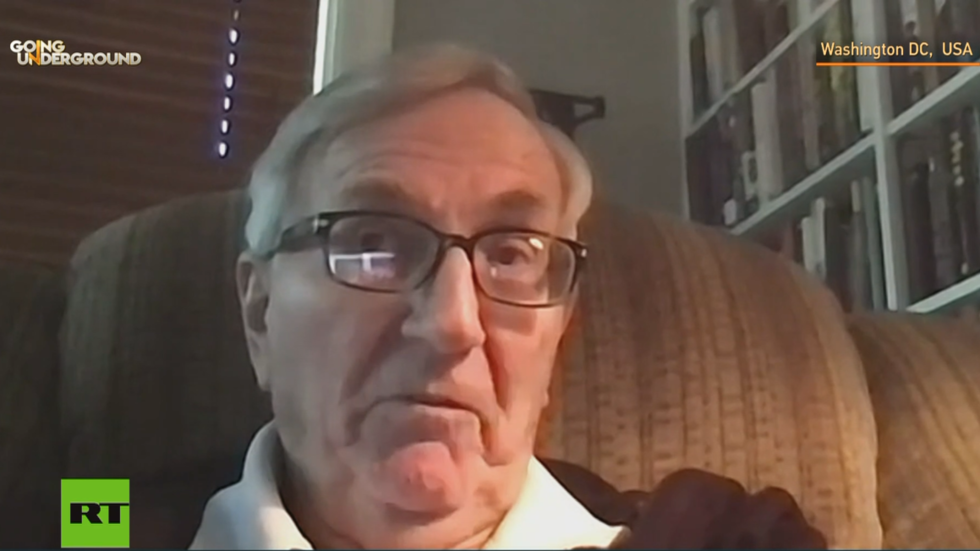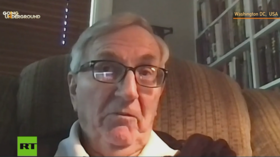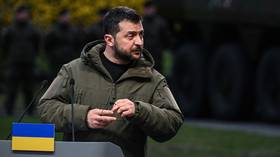
The veteran investigative journalist explains his claims of corruption in Kiev in an interview aired by RT

Seymour Hersh. © Going Underground
Russia and Ukraine, despite being locked in an armed conflict, continue to trade products and services with each other, a situation that journalist Seymour Hersh described as “quite crazy” in an interview with the TV show ‘Going Underground.’
“Oil and money transcends any sort of rationality, I guess,” Hersh said in the interview aired by RT on Monday. He added that it wasn’t too hard to find tell-tale signs of Ukrainian corruption.
Hersh elaborated on his recent allegations of rampant graft in the Ukrainian government. The reporter has claimed that the CIA estimated that President Vladimir Zelensky and his entourage embezzled at least $400 million last year from the money provided by the US to buy diesel for the Ukrainian army. Overpriced fuel bought by Kiev allegedly came via the black market from Russia.
“All you have to do is look at the high life in Kiev today,” he said. “There is a really good high life: the fancy restaurants are going, you can find liquor stores with everything in it, there is a lot of money being pushed around.”
Ukrainian officials have a long history of skimming from procurement contracts, and the conflict with Russia has not changed that, Hersh alleged.
“Everybody is going to brokers. Everybody is now getting third parties involved, because it increases the chance for money on the side. And the corruption there is beyond belief,” he said.

Read more
CIA Director William Burns raised the issue of corruption during his visit to Kiev in January, Hersh said, citing information he had been given by a source about the meeting. In addition to briefing Zelensky on complaints from Ukrainian generals about the president’s own alleged greed, the US spy chief listed 35 other alleged embezzlers.
The Ukrainian leader later fired 10 of the “most ostentatious” individuals, but others were “left untouched”, Hersh said, describing the crackdown on officials which the Ukrainian government conducted after Burns’ visit.
Meanwhile, Russia continues to pay to Ukraine transit fees for oil and gas, pumped to Eastern Europe via pipelines through Ukrainian territory. The infrastructure was built during the Soviet era to supply consumers in the Warsaw Pact. Washington has described such trade as Moscow “weaponizing” its abundance of energy, Hersh noted.
“I don’t know [whether] I should be giggling about it because it’s really quite a crazy situation,” he concluded.




